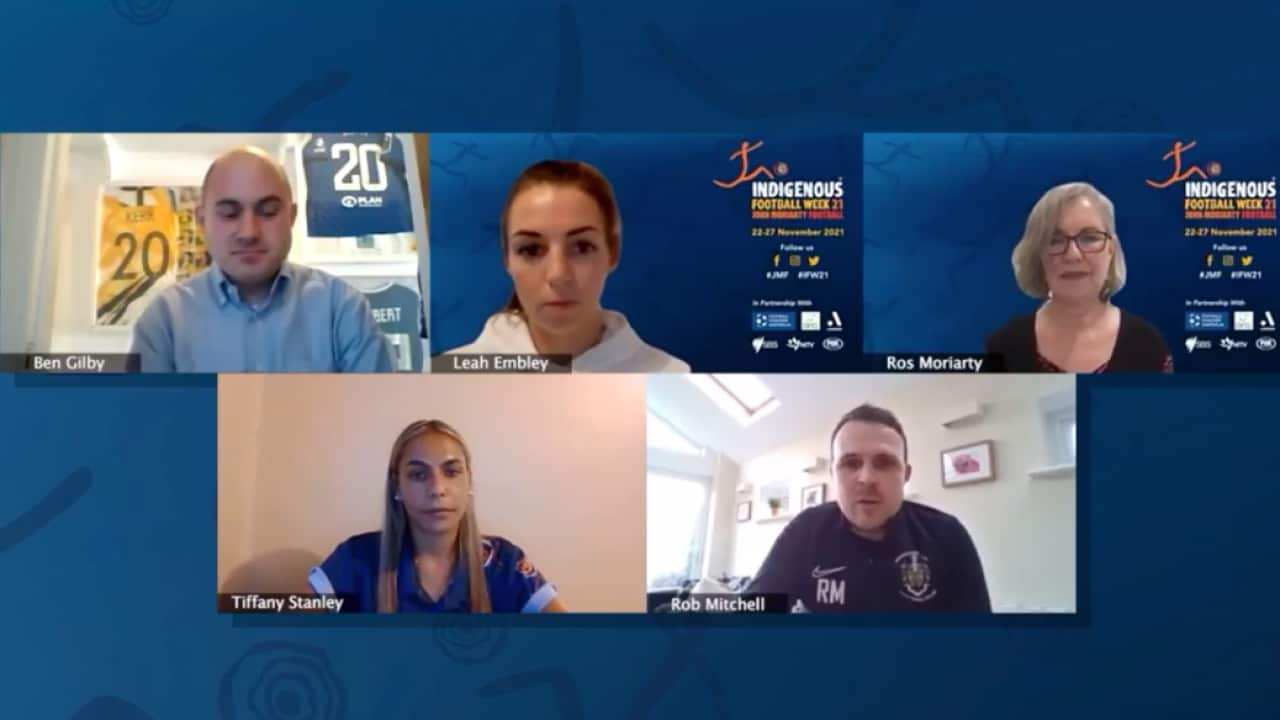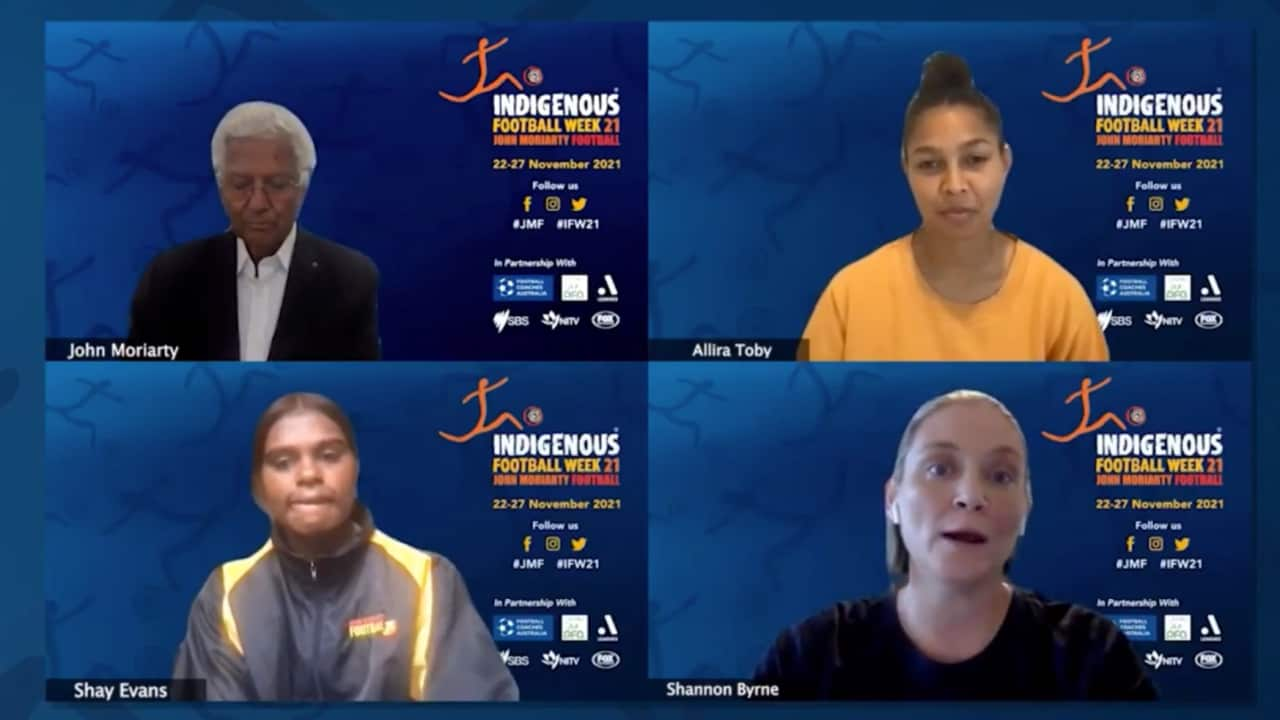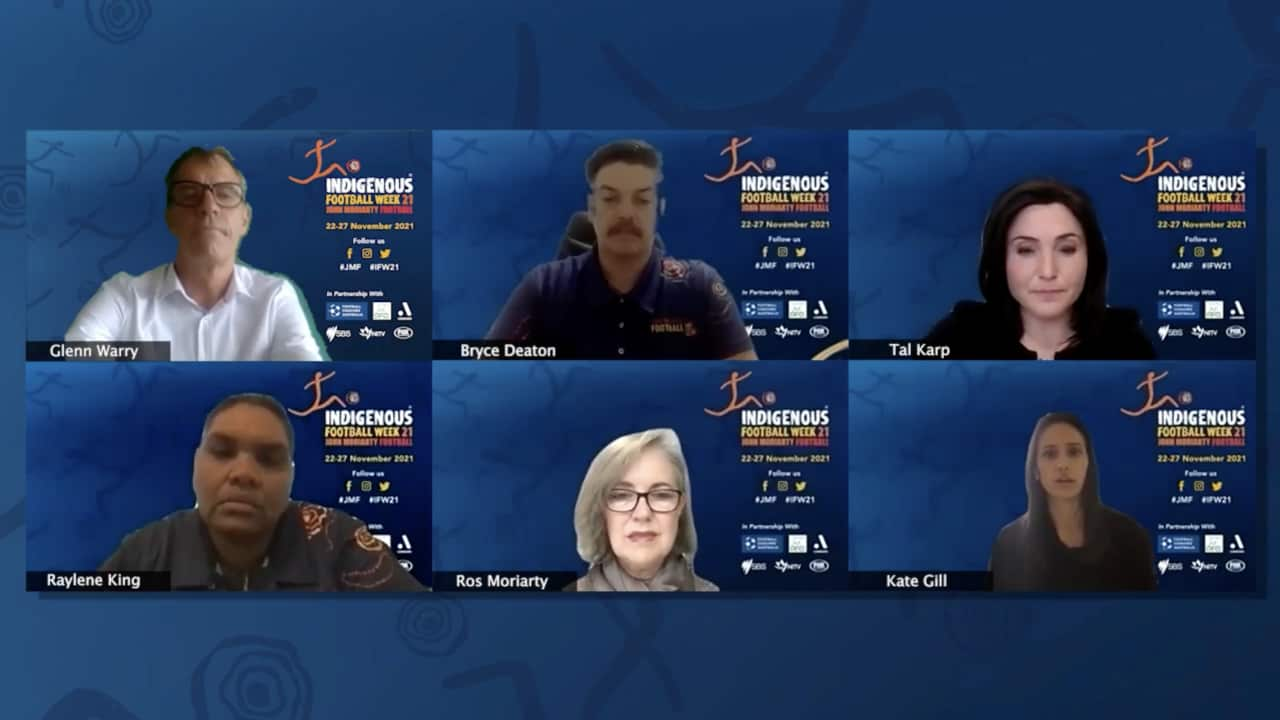Moriarty’s comments came during a panel discussion on cross-cultural perspectives on gender equality as part of Indigenous Football Week, with the Moriarty Foundation managing director stating that furthering women’s and indigenous football for the long term should be two of the key objectives.
"The Women’s World Cup is shining a lens on a real opportunity, but also a real responsibility, to deliver the very best legacy. Not just for elite or mainstream players, but to really drill down into indigenous football and to look for groups who can really harness football to evoke social change,” Moriarty said.
“Women’s football has a long way to go with the media lens still very much focused on the men’s game. Women’s football is widely known as the change and growth centre for the game and we need to make the most of that.
“Australia and New Zealand will host an excellent World Cup, but the real challenge will be making sure that the event sets up this part of the world for the next 10 to 20 years.
“Hopefully it will lead to more girls from less mainstream groups joining the game and staying with the game because we were able to put the structures in place that will support them whether they are referees, coaches or players.”
The final panel discussion of five held during Indigenous football week, Moriarty was joined by JMF coach and Wiradjuri woman Tiffany Stanley, English midfielder Leah Embley and Brighouse United coach Rob Mitchell to discuss the difference in approach to women’s football between Australia and the UK.
Embley, who plays for Brighouse United, a club in the third tier of English Football, says outside of the top leagues there is little exposure for the women’s game in England.
She also said that women’s football is often looked at secondary by the sport’s governing body.
“During the pandemic, a lot was done to get the resumption of men’s football however only the top two tiers of the women’s game were allowed to play,” Embley said.
It was a sentiment shared by her coach Rob Mitchell who said there was a major issue of inequality between the treatment of men’s and women’s football.
“Our season was cancelled but we remained in the FA Cup. We weren’t allowed to train or play for the three weeks leading up to the match and it was the same situation the next round,” Mitchell said.
“Essentially we were forced to win fixtures in a knockout tournament so that we would be allowed to play the game that we love. You would never see that in the men's game”
JMF coach Tiffany Stanley says it is vital the women’s game receives greater coverage, stressing the importance of girls having a visible pathway and role models to look up to.
“It is really important for indigenous girls to have role models in the game,” Mitchell said.
“As indigenous people, we go through a lot of trauma, especially young people who need to know that there is someone there that is a support system and won’t give up on them.
“To have female coaches, and indigenous football coaches for that matter, to provide that support to young indigenous players – both on and off the pitch – is what will help them get the most out of the game but also their own development as people.”
Watch the full discussion below, or catch up on other panel discussions held during Indigenous Football Week on the SBS Sport Facebook page.












